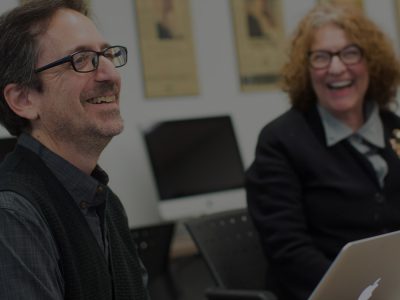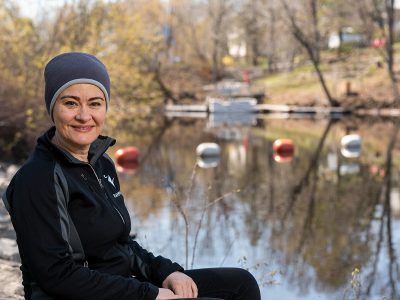By Jena Lynde-Smith
Photos by Canadian Museum of Immigration
Krenare Recaj was just a young child when she and her family were forced from their home in Kosovo in 1999. They were among thousands of Kosovar Albanians airlifted to Canada through Operation PARASOL, a humanitarian mission by the Canadian government to provide refuge for those displaced by the conflict.
Twenty-five years later, Recaj is leading groundbreaking research into the humanitarian response that saved her family — and over 7,000 others — from conflict.
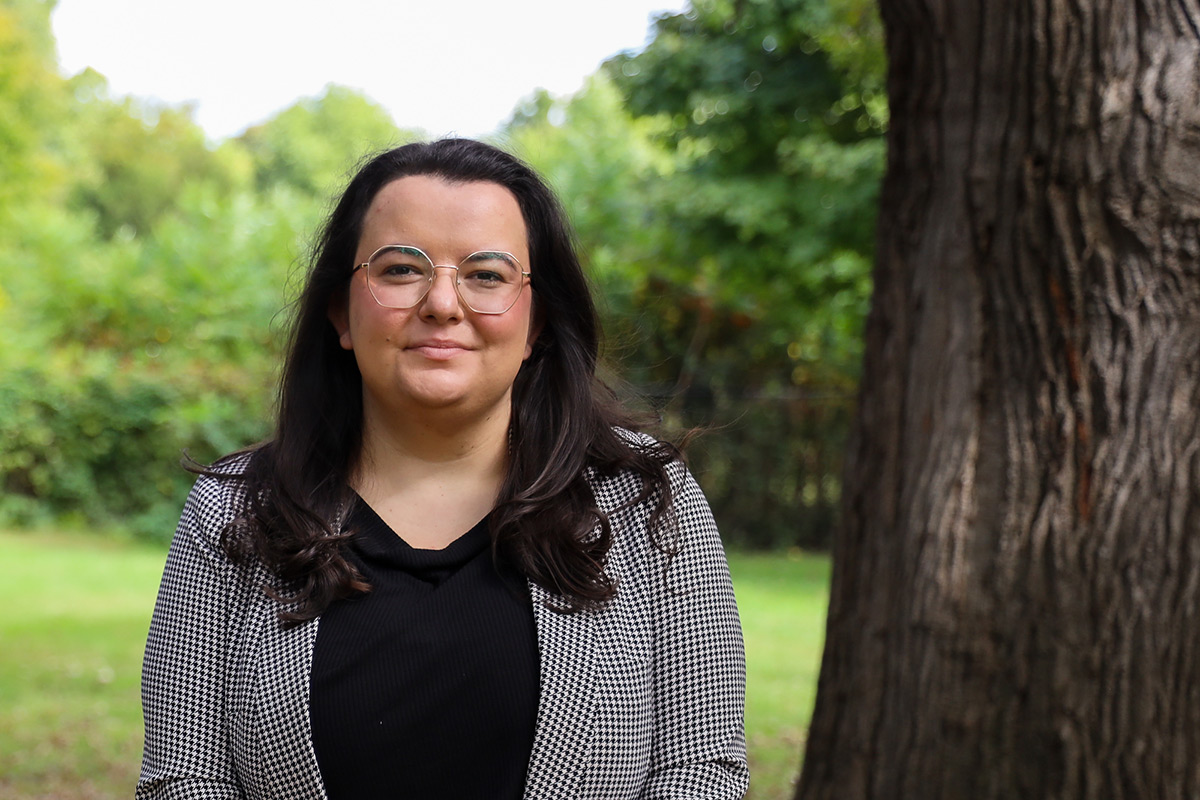
Krenare Recaj
“I want there to be proof that our stories matter,” says Recaj, a PhD student in Carleton University’s department of history.
“This is part of Canadian history, and it’s important that people understand what happened.”
Recaj’s work has gained national and international recognition, leading to her being invited to the Senate of Canada and speaking at the launch of the Canadian Museum of Immigration at Pier 21’s special exhibition on the Kosovar movement, which she helped develop.
Forced from Kosovo
At just three years old, Recaj fled the brutal conflict with her family. After spending time in a refugee camp in Macedonia, they were relocated to Canada, where they began rebuilding their lives.
Despite the hardship in her early years, Recaj excelled. She later earned undergraduate and master’s degrees, focusing on military and diplomatic history. During her master’s research, she made a pivotal discovery that changed the trajectory of her studies and career.
While browsing Pier 21’s collection Recaj found a photo of herself and her siblings.
“It was startling,” she says.
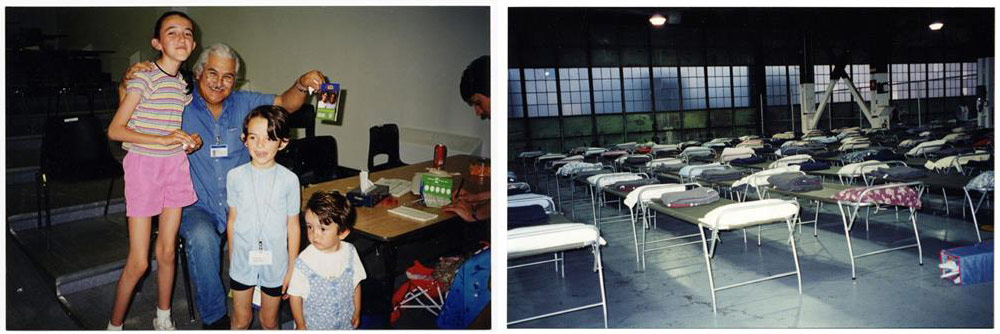
Left: The mislabeled photo Krenare Recaj found of her and her siblings | Right: Temporary sleep accommodations in Trenton, ON, where Krenare Recaj and her family stayed periodically.
“I had somehow distanced myself from the fact that I was studying my own history.
“I always wanted to prove my research wasn’t just about my personal connection, but finding that photo shifted my perspective.”
This moment led Recaj to apply for her doctorate at Carleton to research the experiences of Kosovar refugees and their journey to Canada through oral history.
“The power of oral history is not just in its ability to supplement the official record; it’s in its capacity to challenge our understanding by bringing in voices too often overlooked.”
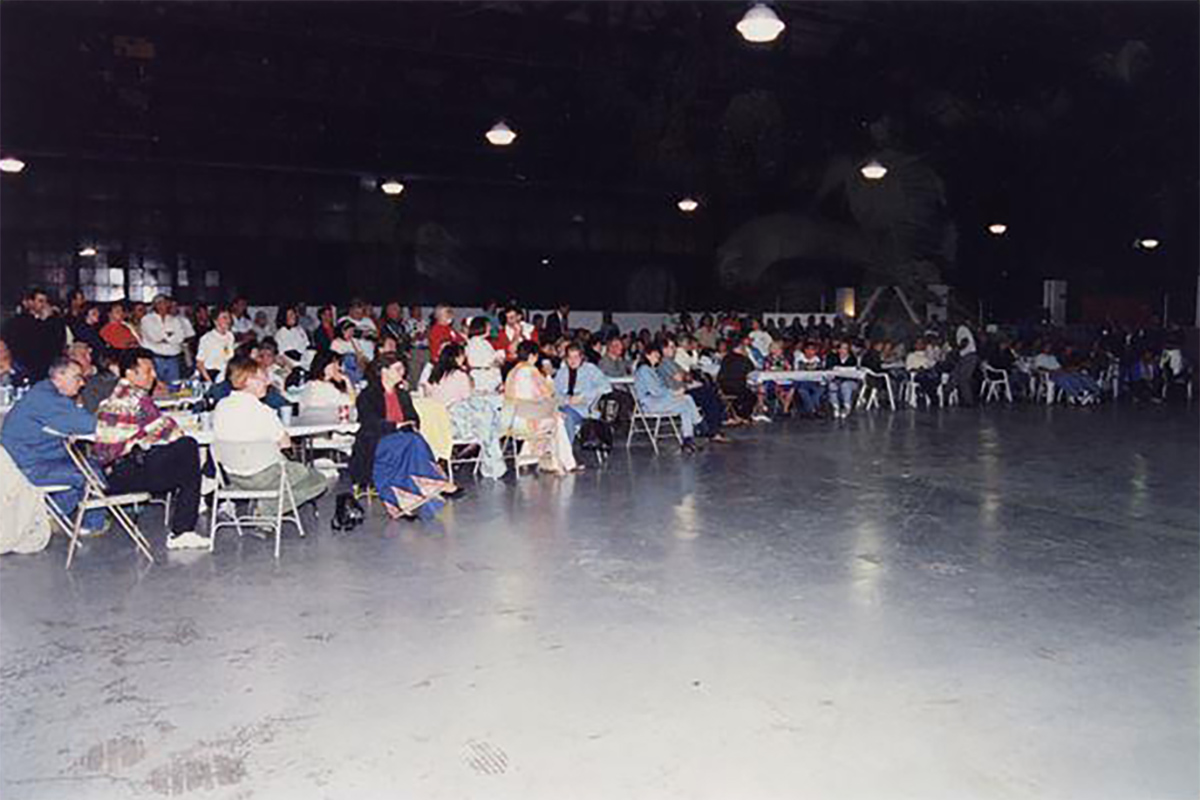
From Refugee to Researcher
At Carleton, Recaj is working under the mentorship of professors Laura Madokoro and Norman Hillmer to document the experiences of the Kosovar diaspora and Canada’s crucial role in assisting Kosovar refugees, most notably through Operation PARASOL. She has conducted a series of in-depth interviews with refugees, immigration officers, Red Cross workers and policymakers, capturing the intricate details and human dimension of the operation.
“Out of the 42 officials interviewed, 36 called it the highlight of their career, and many even said it was the highlight of their life,” she says. “This experience profoundly shaped them.”
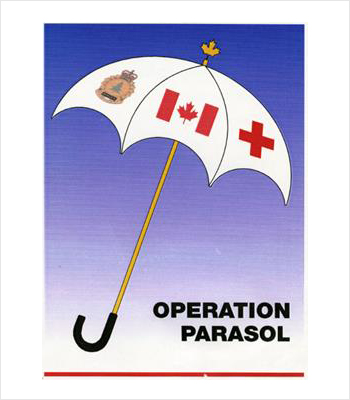 Among those interviewed was Lucienne Robillard, Canada’s Minister of Immigration during the crisis. Looking back on the key role she played in Canada’s decision to help Kosovar refugees, Robillard states, “welcoming Kosovar refugees to Canada was a defining experience in my career as Minister of Immigration and will remain in my memories forever.”
Among those interviewed was Lucienne Robillard, Canada’s Minister of Immigration during the crisis. Looking back on the key role she played in Canada’s decision to help Kosovar refugees, Robillard states, “welcoming Kosovar refugees to Canada was a defining experience in my career as Minister of Immigration and will remain in my memories forever.”
Recaj was surprised to discover how little attention Operation PARASOL has received in Canada.
“I have dozens of people telling me this was the highlight of their career and their life, yet the media and historians have overlooked it,” she says.
One immigration official took her on a tour of Borden, the Canadian Forces base where she and her family were housed after arriving in Canada. Grateful for this experience, she felt other refugees also deserved the chance to meet those who played a pivotal role in their lives in 1999.
“I felt overwhelmed and thought, I wish I could gather everyone in a room to reconnect.”
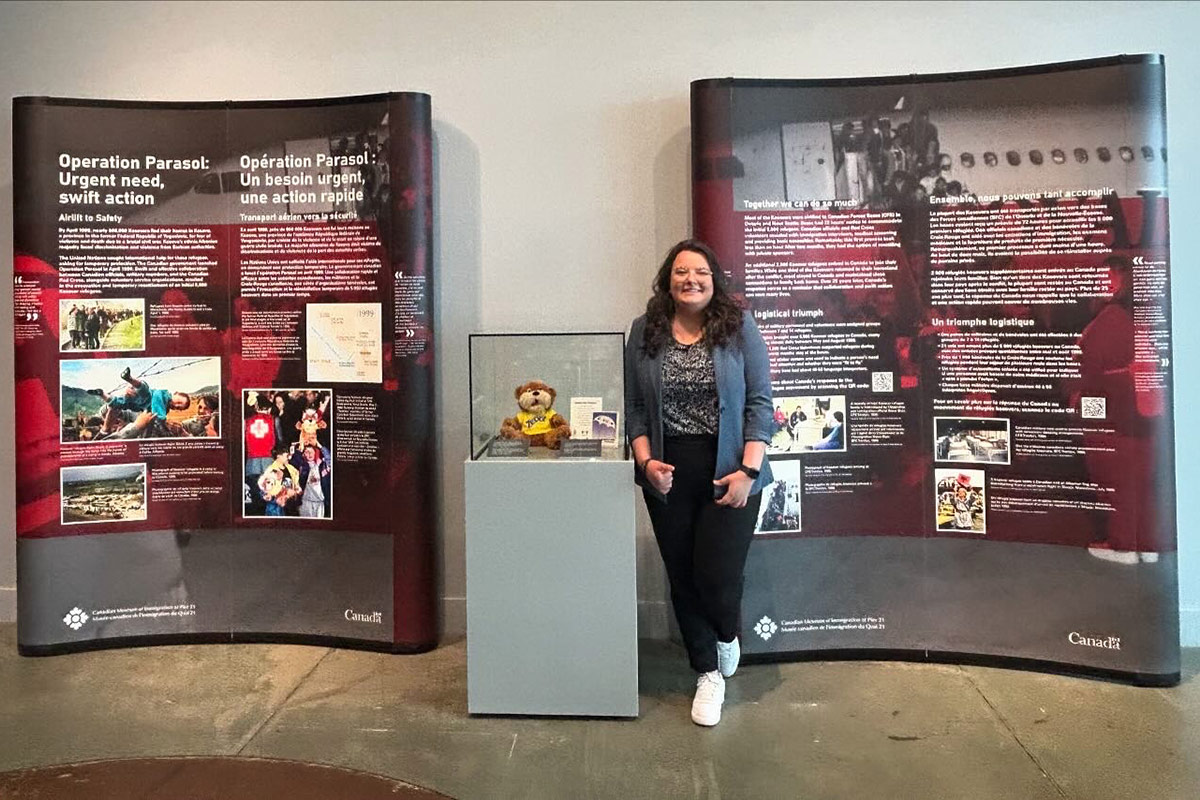
Preserving the Kosovar Story
Inspired by this desire to reconnect Kosovar refugees and the Canadian officials and aid workers whose lives intersected in 1999, Recaj conceived the conference: Canada, Kosovo, and the Kosovar Refugee Diaspora: 25 Years On. Set for early November in Toronto, this event will mark the 25th anniversary of Operation PARASOL.
“The policymakers want to know what happened to the people they helped. The refugees want to express their gratitude and understand why certain decisions were made,” says Recaj. “This conference is an opportunity for both sides to reconnect and reflect.”

A refugee camp in Macedonia, where Kosovar refugees were placed during Operation PARASOL.
With over 250 people expected to attend, the two-day symposium is being planned in collaboration with the Bill Graham Centre for Contemporary International History at the University of Toronto, the Canadian Museum of Immigration at Pier 21, the Canadian Immigration Historical Society and representatives from the Kosovar Albanian community.
In tandem with the conference, Recaj is leading the establishment of an archive dedicated to Kosovar refugees at Carleton’s MacOdrum Library, preserving the stories of this movement for future generations.
“My hope is that the lessons from the Kosovar refugee experience will inform how we address today’s refugee crises and improve the way we support displaced people around the world.”
Thursday, October 17, 2024 in Community, History
Share: Twitter, Facebook

